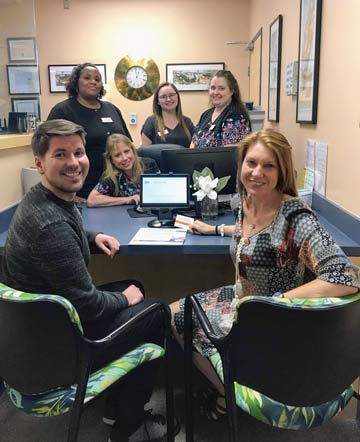The coronavirus brought with it huge financial concerns for Gulf Coast Outpatient Surgery Center in Biloxi, Miss., according to Michele Blackwood, CPC, CPB, the facility’s business manager. Patients who have lost jobs and their insurance
coverage are more likely to put off procedures, meaning the facility needs to collect full copays from patients who show up for their scheduled procedures.
“As we’re ramping back up, patients who had their procedures postponed because of COVID-19 might wait even longer, especially if they’re just returning to work themselves,” says Ms. Blackwood. “And some of our
patients will now have more difficulty paying the out-of-pocket fees for surgery.”
The patient finance company Gulf Coast works with offers a series of loans to patients. Ms. Blackwood says the arrangements work for patients because the terms of the loans are flexible, meaning the monthly payments can be adjusted. The online
application can be completed in advance of surgeries, or, in the case of an emergent procedure, in less than 10 minutes in the facility on the day of surgery.
Ms. Blackwood says the loans help to ensure cash-strapped patients, who can’t afford high deductibles of $2,500 to $5,000, have access to the surgical care they need.
The arrangement also helps the facility, which gets 100% of patients’ fees in advance of procedures. Connecting patients to the lender allows the facility to capture more revenue quickly and gets the administrative staff out of the time-consuming
and aggravating financial bookkeeping, billing and collections business.
“The lack of outstanding patient balances also makes for an overall cleaner claim for us to submit to payers,” says Ms. Blackwood.
She suggests selecting a patient lending partner with fast application and approval processes, as well as customer service reps who respond quickly to questions from patients or staff. “We prefer a company that immediately answers emails
without us having to get on the phone,” she says.
The lender should also educate patients about details of the payment process and help them determine all of the costs they’ll be responsible for, including fees from the facility, the surgeon, the anesthesia providers and the imaging
groups that perform pre-op MRIs and CT scans. “Patients are asked for money from a lot of providers, so they need to know exactly how much the episode of care will truly cost,” says Ms. Blackwood.
Gulf Coast fully reopened in late May, although not all of the facility’s surgeons are at their pre-coronavirus case volume. The center is busy, however, because most of the patients whose cases have been postponed have rescheduled,
which Ms. Blackwood chalks up in part to the patient financing options the facility offers.
“Struggling to afford treatment is a heavy load for any patient, especially those who are facing a stressful surgery,” says Ms. Blackwood. “Securing a loan is a huge relief for them. It means they don’t have to postpone
treatment. And it’s a big boost to us because it helps us cover operating costs so we can keep the center up and running during this difficult time.” OSM
.svg?sfvrsn=be606e78_3)

.svg?sfvrsn=56b2f850_5)